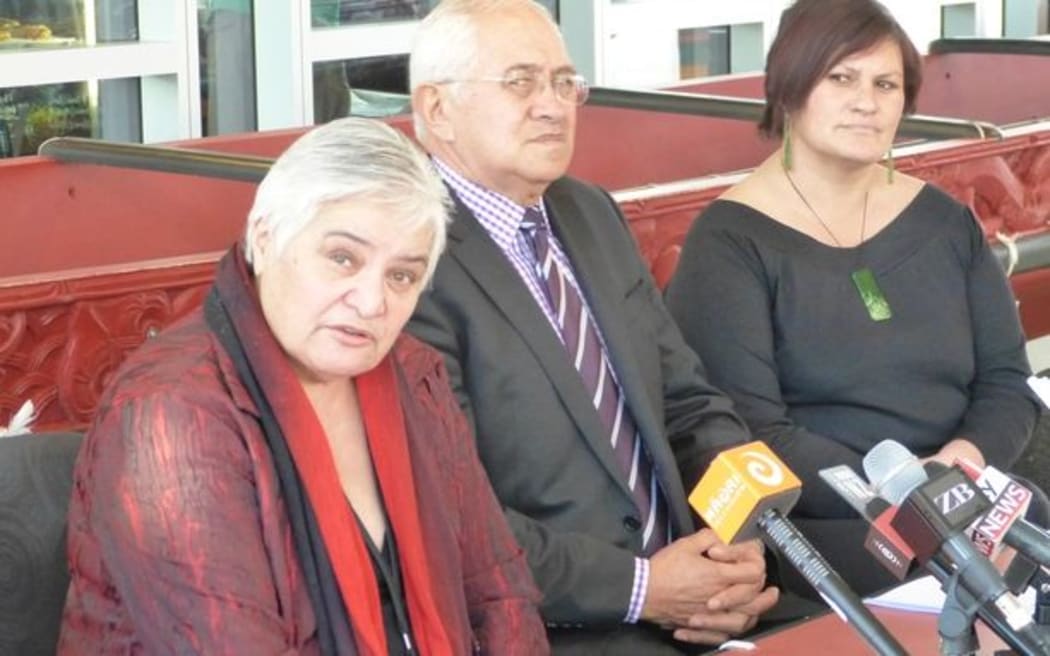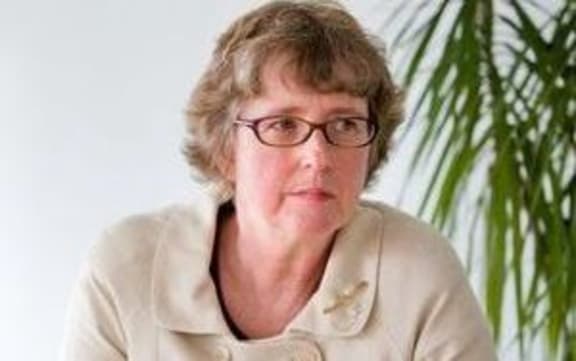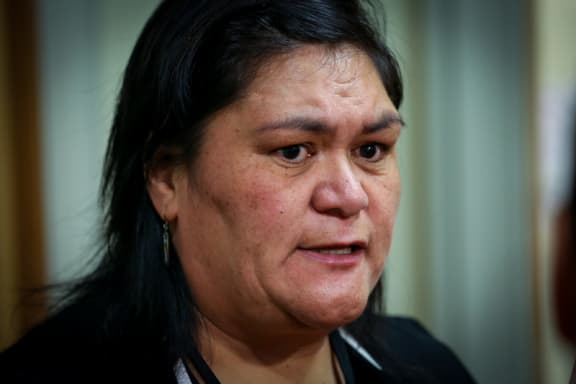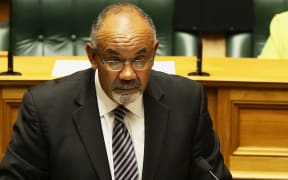Officials from the Auditor-General's office have faced tough questions from MPs about its critical report into Whānau Ora.

Founding Whānau Ora Minister Tariana Turia, left, with members of the initiative's governance group. Photo: RNZ
The report found that although there were positive signs that some Māori had benefited from the health and welfare initiative, its delivery via Te Puni Kōkiri (TPK), the Ministry of Health and Ministry of Social Development was badly handled.

Auditor-General Lyn Provost Photo: OFFICE OF AUDITOR-GENERAL
In a report tabled in Parliament on 5 May, Auditor-General Lyn Provost called Whānau Ora's administration cumbersome and unusual.
She found about $42 million of the programme's $137 million funding had been spent over four years on administration, which included research and evaluation.
Today, her office's manager of performance audits started by explaining why the report described its delivery as confused.
Evaan Aramakutu said its implementation was not integrated and providers were left unclear as to its kaupapa.
"It seemed like almost everybody we spoke to about Whānau Ora had a different view about what Whanau Ora was and what it was trying to achieve.
"We think that impacted on how effective they thought Whānau Ora had been. The point to make here is that we couldn't get a consistent explanation from the joint agencies about what Whānau Ora was and what it was trying to achieve, and we think that contributed to some of the confusion that [there] is undoubtedly about Whānau Ora."
Mr Aramakutu said the initiative's progress was hard to measure.
"No one can tell whether the progress that has been made to date is on target - whether the results achieved by whānau and providers, including those positive signs I just talked about, were the right ones.
"You'll see in the overview of the report that we talk about delays in spending, and that some of the funds intended for whānau did not reach them."
Providers unclear on initiative's objectives - official
Labour MP Nanaia Mahuta asked whether the Auditor-General was satisfied in the way in which Te Puni Kōkiri managed the timeframe around research and evaluation.

Labour MP Nanaia Mahuta Photo: RNZ / Alexander Robertson
A senior performance auditor from the Auditor-General's office, Leanne Arker, replied that one internal evaluation was not good enough.
"We think more could have been done to publicise the findings from that research and evaluation.
"There was some internal developmental evaluation done on the WIIE [the Whānau Integration, Innovation and Engagement Fund, which aims to help whānau move to greater self-reliance and self-management] to help TPK run that more effectively, and they used that. That was for their benefit and for the regional groups' benefit.
"But the bulk of the research and evaluation was with those research collectives - and we think more could have been done to get more of that information out and clearly understood."
National Party MP Matthew Maurice Doocey asked the officials to give an example to show how Whānau Ora's objectives were unclear.
Mr Aramakutu said providers did not feel the government departments were working in cohesion.
"It's not as though the messages they were getting were necessarily conflicting, but the sense that [one head of a Whānau Ora provider] got was that - from the Te Puni Kōkiri officials, there was a strong focus on realising Māori potential; from the Ministry of Health, there was a focus on providing wrap-around services to high-needs clients; and the Ministry of Social Development seemed to be more focused on results-based accountability.
"From the point of view from that person, at least, it was a little bit like 'well, which is it?'"
New Zealand First Leader Winston Peters slated Whānau Ora's performance and asked Ms Arker whether the word innovation should be used to describe the initiative.
"Why use the word 'innovate'? If you don't know what it's about, and they don't know what it's about, the people don't know what it's about, no-one can explain what it's about - why would you use a word like 'innovate'?
Ms Arker said an innovative idea should not be abandoned just because of implementation problems.
"I think it's innovative as opposed to the fact that it's new funding attached to initiatives that were further extensions, at least in part of work that had been done earlier, which was also new. So it was innovative in the fact that it was something new being tried."
Mr Peters replied that they were using a very subjective word and there were other words that could be used to describe it.
Where did the spending go?
In the first four years of Whānau Ora, the total amount spent was $137.6 million, which was made up of:




